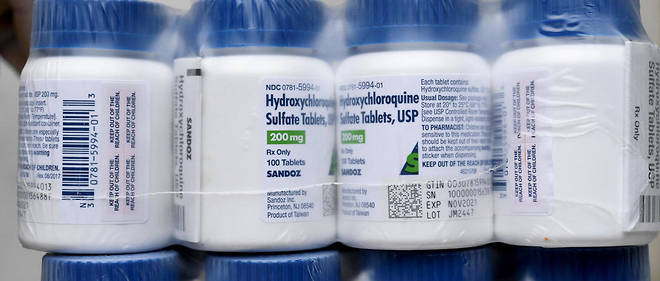Source: The Point / Le Point
In contrast, the study indicates that hydroxychloroquine is not effective in reducing the mortality of patients with Covid-19.
According to a French study, posted online on June 20 but not yet published, patients with Covid-19 and treated with hydroxychloroquine are more likely to be discharged from hospital one month after the start of treatment than other patients. The rate of patients who were able to reach their home 28 days after the start of treatment is more than 11 points than those who did not receive hydroxychloroquine. This represents a 25% relative increase in the likelihood of being discharged from hospital, the study said.
This result, which had not been highlighted in previous research on hydroxychloroquine, “deserves to be replicated in other large studies” to be confirmed, underlined one of the authors, Émilie Sbidian, interviewed by Agence France-Presse. The study concluded, however, that there was “no statistically significant difference in 28-day mortality” between the patients who received hydroxychloroquine and the control group, “after taking confounding factors into account”.
No difference for those who received azithromycin
As for those who received the antibiotic azithromycin in addition to hydroxychloroquine, the study observed no difference in the rate of discharge from hospital and “a possible excess risk of mortality”. The researchers analyzed the medical records of approximately 4,642 patients hospitalized for Covid-19 in one of the 39 AP-HP hospitals between February 1 and April 6. They excluded those who had received another drug currently tested against the coronavirus, such as the antiviral remdesivir or the immunosuppressants tocilizumab and sarilumab.
The results have been statistically corrected to take account of “confounding factors”, and in particular the difference in composition of the three groups. “Regarding the data from our study, we can see that patients on hydroxychloroquine or hydroxychloroquine / azithromycin had higher obesity, diabetes and smoking (poor prognosis factors) rates of around 5% to 15% , but that they were also much younger than patients not treated with hydroxychloroquine (on the order of 6 to 8 years younger), which can also greatly influence the results since the mortality from coronavirus infection is all the more important as the age is high ”, explains Émilie Sbidian.
“It is therefore very important not to stop at the raw results to judge the effectiveness or ineffectiveness” of the treatment, adds the researcher, dermatologist at Henri-Mondor hospital in Créteil. The authorization to prescribe hydroxychloroquine in hospitals, outside of clinical trials, was withdrawn on May 4.
Related:
FDA Hydroxychloroquine Ban, Fake Science, And Political Agendas
The Coronavirus Is Man Made According to Luc Montagnier the Man Who Discovered HIV

